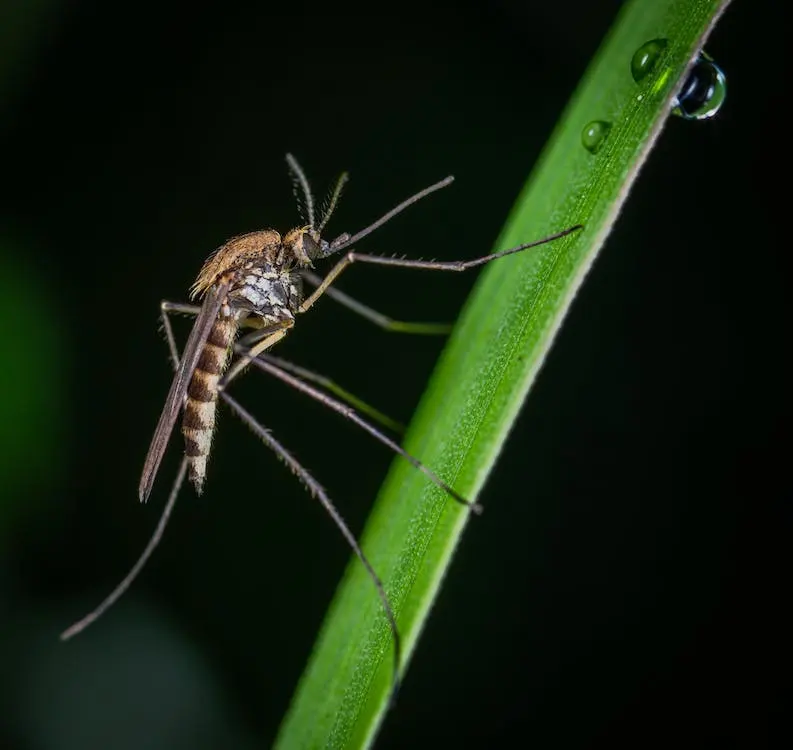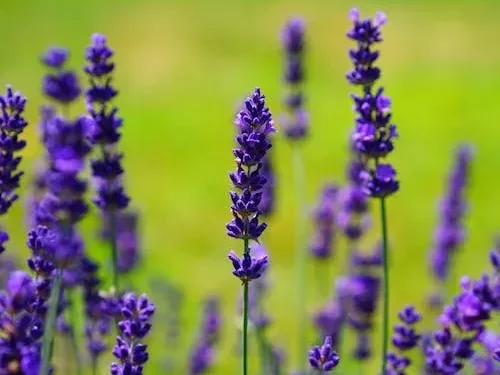
Are you tired of pesky mosquitoes ruining your time outdoors? Mosquitoes are a common problem in North Carolina lawns and gardens, and they can be more than just an annoyance. Controlling mosquito populations is important not only for our comfort but also for our health. Mosquitoes are carriers of diseases like West Nile virus, malaria, and dengue fever. In addition, mosquito bites can cause skin irritation, itching, and discomfort. For these reasons, it’s important to take steps to control mosquito populations in your lawn and garden.
One effective method of controlling mosquitoes is through the use of mosquito lawn treatments. These treatments are designed to reduce the number of mosquitoes in your lawn by targeting their breeding sites and reducing their ability to reproduce. By reducing the mosquito population, you can enjoy your time outdoors without the threat of mosquito-borne diseases or annoying bites. Join our Wake Forest lawn care experts at FortSmith Landscaping as we explore how mosquito lawn treatments work and how they can help you say goodbye to unwanted insects and enjoy your time outdoors.
Understanding Mosquitoes
Mosquitoes are small, flying insects that belong to the family Culicidae. There are thousands of species of mosquitoes, and they are found all over the world. Mosquitoes are known for their biting behavior and are common pests in outdoor areas such as lawns, gardens, and wooded areas.
The Mosquito Life Cycle
Understanding the life cycle of mosquitoes is essential for effective mosquito control. Mosquitoes have a complex life cycle that consists of four distinct stages: egg, larva, pupa, and adult.
Each of these stages of the mosquito’s life cycle requires different conditions and offers different opportunities for control:
- The egg stage: Female mosquitoes lay their eggs on the surface of standing water, or in moist areas that will become flooded in the future. The eggs hatch into larvae within 24-48 hours.
- The larva stage: The larval stage is aquatic and spends its time in the water, feeding on microorganisms and developing into pupae.
- The pupa stage: The pupal stage is also aquatic, but the pupa is non-feeding and does not move around much.
- The adult stage: The adult mosquito emerges from the pupal stage and takes flight. Only female mosquitoes feed on blood, as they require it to produce eggs. Mosquitoes mate in the air, and the females return to water sources to lay their eggs, completing the life cycle.
Identifying Mosquitoes on Your Lawn
Identifying mosquitoes in your lawn is an important step in controlling their population and preventing mosquito-borne illnesses.
Signs of Mosquito Infestation
The most obvious sign of a mosquito infestation is getting bitten. If you notice an increase in mosquito bites, it’s a good indication that there are mosquitoes on your lawn. Another sign of a mosquito infestation is the presence of swarms of mosquitoes in your yard. Swarms can be particularly noticeable at dawn or dusk when mosquitoes are most active.
Mosquito Breeding Grounds and Habitats
Mosquitoes require standing water to breed, so areas with standing water are common breeding grounds. Look for areas with standing water, such as birdbaths, flowerpots, and old tires. Mosquitoes also tend to congregate in areas with dense vegetation, such as tall grass or overgrown bushes.
Identifying Mosquito Larvae and Adult Mosquitoes
Mosquito larvae are aquatic and can be found in standing water. They look like small, wriggling worms and have small heads and segmented bodies. Adult mosquitoes are flying insects with thin bodies and long, thin legs. They have a pair of wings and long, slender mouthparts called proboscis that they use to feed on blood.
Controlling The Mosquito Population
Controlling the mosquito population in your lawn and garden is essential for preventing the spread of mosquito-borne diseases and reducing the annoyance of mosquito bites. There are several methods available for controlling mosquitoes, including natural and chemical options.
Natural Mosquito Control Methods
Here are some of the natural methods for controlling the population of mosquitoes in your yard and ensuring mosquito activity does not continue:
- Remove standing water: Mosquitoes require standing water to breed, so removing standing water sources can help reduce their population. Empty any containers that collect water, such as flowerpots, birdbaths, and pet dishes.
- Plant mosquito-repelling plants: Adding certain plants, such as lavender, basil, and citronella, to your landscaping plan can help reduce mosquito populations, as they work as a natural mosquito repellent.
- Use mosquito traps: Mosquito traps use a variety of methods to attract and capture mosquitoes, such as using light or carbon dioxide. These traps can be an effective natural way to control mosquito populations.
Chemical Mosquito Control Methods
Sometimes it takes a little extra effort to control an infestation of mosquitoes, and thankfully there are chemical options available.
Some chemical methods for mosquito control include:
- Insecticides: Insecticides are a common method of controlling mosquitoes. These chemicals can be applied to outdoor areas to kill adult mosquitoes and their larvae.
- Larvicides: Larvicides are chemicals that target the larval stage of mosquitoes. These can be used to treat standing water sources and prevent mosquitoes from developing into adults.
- Fogging: Fogging involves the use of a machine that releases a fog of insecticide into the air. This method is typically used for large areas and can be effective in reducing mosquito populations.
Mosquito Lawn Treatment
Mosquito lawn treatment is a comprehensive approach to controlling mosquito populations and killing mosquitoes or other lawn pests in your lawn and garden.
Why Yard Sprays are Effective for Mosquito Control
Yard sprays are effective because they treat the entire lawn and garden, not just specific areas. This means that they can target adult mosquitoes and their larvae wherever they are present. Yard mosquito sprays are designed to last for several weeks, providing long-lasting protection against mosquitoes.
Clearing of Standing Water
Clearing standing water sources is an essential step to control mosquitoes. This can be achieved by emptying containers that collect water, such as flowerpots, birdbaths, and pet dishes. Regularly checking your lawn and garden for standing water sources can help prevent the development of mosquito larvae.
Keep a Manicured Lawn
A manicured lawn can help reduce mosquito populations by minimizing the areas where mosquitoes can rest and breed. Regular lawn mowing and trimming of trees and plants in and around the garden can help reduce the number of areas where mosquitoes can congregate.
Plant Natural Deterrents

Certain plants, such as lavender, basil, and citronella, have natural mosquito-repelling properties. Planting these around your lawn and garden or in potted plants on your porch or deck can help reduce mosquito populations in your entire yard. Natural deterrents are safe for humans and animals, making them a popular alternative to chemical mosquito control methods.
Kill the Larvae
Killing mosquito larvae is an essential step in preventing the development of adult mosquitoes. In order to kill mosquito larvae, use a larvicide or other mosquito pesticides, that target the larval stage of mosquitoes. Larvicides can be applied to standing water sources to prevent the development of mosquito larvae.
Want Your Yard To Repel Mosquitoes? Contact FortSmith Landscaping for a Full Lawn Care Plan
Are you tired of being swarmed by mosquitoes every time you step outside? Do you want to enjoy your yard without worrying about mosquito bites and the potential health risks they pose? Then it’s time to take action to get rid of mosquitoes by contacting FortSmith Landscaping for a full lawn care plan with pest control.
Our comprehensive mosquito lawn treatment plan includes yard sprays, clearing of standing water, maintaining a manicured lawn, planting natural deterrents, and killing larvae. Our team of experts will work with you to develop a customized plan that meets the specific needs of your lawn.
Don’t let mosquitoes take over your yard and ruin your outdoor activities– contact FortSmith Landscaping today to schedule your mosquito lawn treatment and start enjoying a mosquito-free lawn and garden.
Get started by calling us at (919) 228-8495 or filling out our contact form below!
